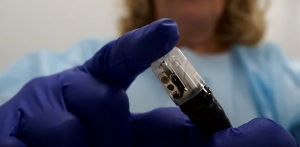por
John R. Fischer, Senior Reporter | March 27, 2023

The FDA has issued a third warning letter to Olympus about manufacturing issues with its endoscope technology. (Photo courtesy of Olympus)
Several violations found at a Tokyo facility have led the FDA to hit Olympus Medical with a third warning letter about its manufacturing and the quality of its endoscopes.
Among the issues were a failure to evaluate user reports of adverse events and preventing quality problems from recurring.
Since November 2020, the agency has received 160 complaints that the MAJ-2315 single-use distal end cover for its duodenoscopes “dropped out,” leading to mucosal tissue damage, which can cause patients pain and discomfort, and with Olympus issuing no corrective or preventive action.
Additionally, the inspectors raised questions about device sterility following reports of wrinkles and air bubbles in the package seal.
“It is your firm’s responsibility to ensure compliance with applicable laws and regulations administered by FDA. The specific violations noted in this letter and in the Inspectional Observations, FDA 483, issued at the close of the inspection may be symptomatic of serious problems in your firm’s manufacturing and quality management systems,” wrote Courtney Lias, director of the FDA’s OHT 3: Office of GastroRenal, ObGyn, General Hospital and Urology Devices, in the letter to Seiji Morishita, director of Olympus Medical Systems Corp.
The FDA has issued warning letters to the company since November 2022.
One in January
said subsidiaries Olympus Medical System Corporation and Aizu Olympus Company were not meeting requirements for validating device quality and performance at endoscope facilities, including adequate testing and documentation of the assembly process and developing medical device reporting procedures as mandated.
This most recent one notes that customers reported seeing cracked caps already present when the endoscopes were removed from packaging and attributed the harm patients incurred to this.
Olympus also altered its equipment to prevent air bubbles and wrinkles in packaging, it said, but did not initiate any revalidation of the process.
